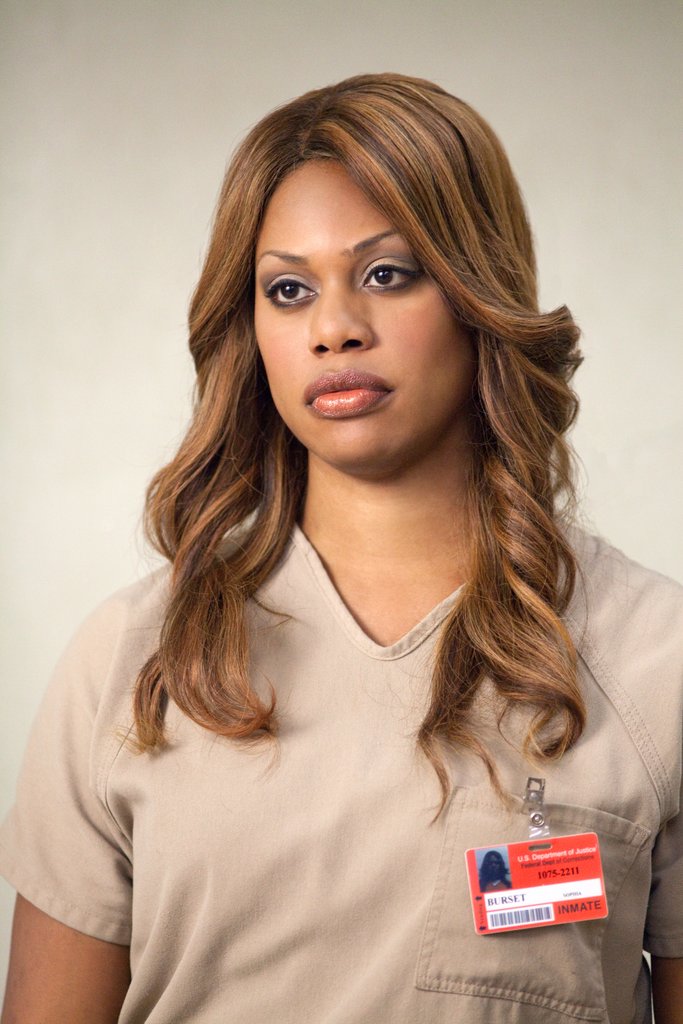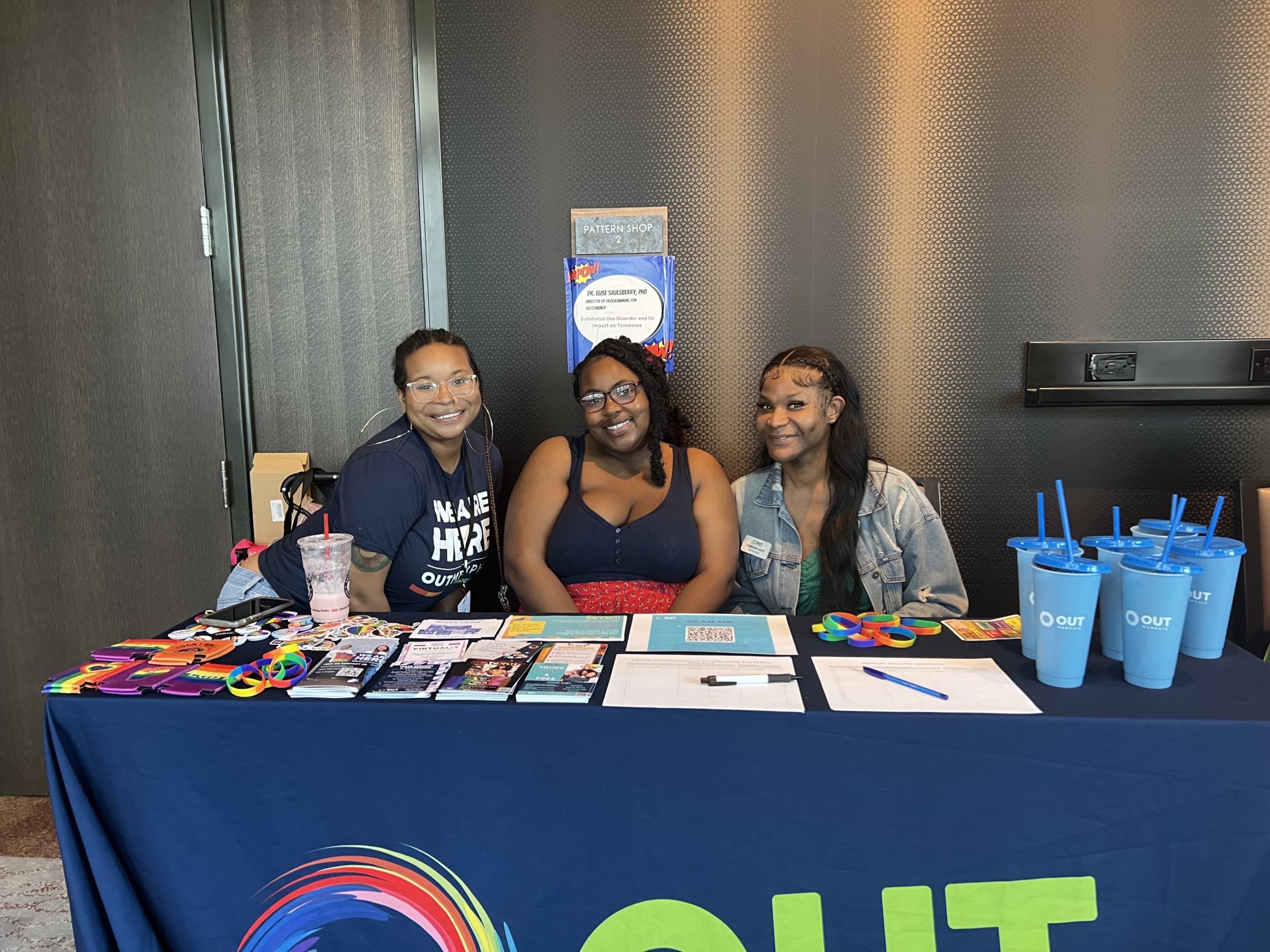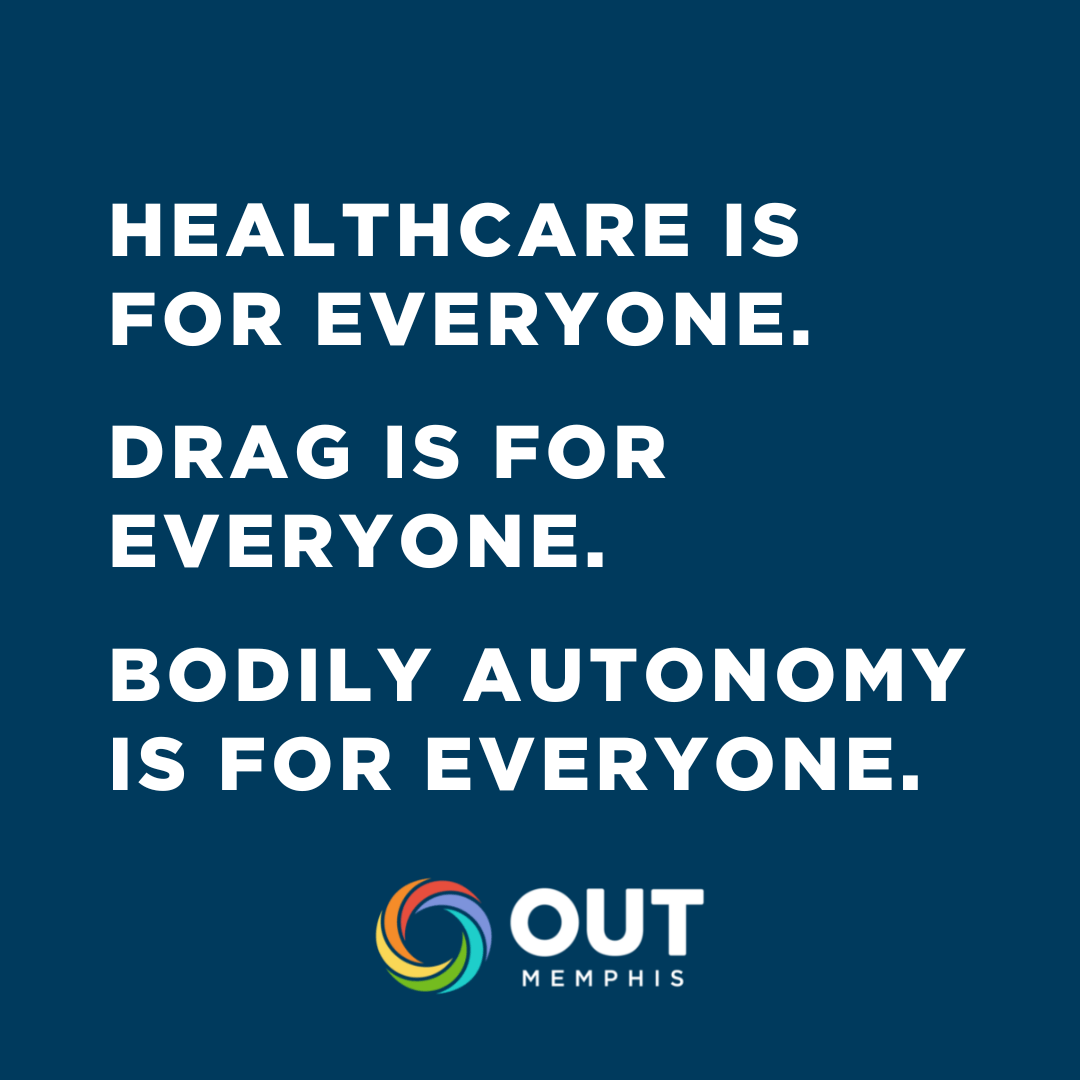
Memphis Pride Fest is coming up this weekend, and at OUTMemphis we are gearing up to celebrate. Our community’s history, struggle, passion, and vibrancy will all take center stage this weekend, and we are ready to wave the flags, meet new friends, and MARCH!
Walk with OUTMemphis in this year’s Pride parade. Our theme is Got Character?, and we are encouraging everyone who wants to have a little extra fun to chose an LGBTQ character in media and dress up/cosplay with us. These characters inspire us, giving us options and validation even when the world around us is a hostile one.
To help people get in on the fun, here are 10 LGBTQ characters in media that have helped us get our lives over the years:
(Obviously, a huge SPOILER ALERT is in effect for every character featured below.)
Poussey Washington, Orange is the New Black

Poussey Washington, Orange is the New Black
Poussey Washington, the African American lesbian book-loving polyglot from Orange is the New Black, is beloved by fans and fellow characters alike. As we watch her character’s story unfold, we get glimpses of young love, insight into her relationships with her parents, and plot lines on love (both requited and unrequited) that tug at the heartstrings.
Washington, played by Samira Wiley, breaks stereotypes and evolves as a character throughout the show, forcing viewers to fall in love with her character whether they like it or not.
Learn more about Poussey Washington: Orange is the New Black Wikia, Entity
Albus Dumbledore, The Harry Potter Series
Albus Dumbledore, The Harry Potter Series
Albus Dumbledore, who was widely considered one of the most powerful wizards on the planet in the Harry Potter series, was also as gay as the day is long according to writer J.K. Rowling. Dumbledore served as the Headmaster at Hogwarts School of Witchcraft and Wizardry, and in the Harry Potter book series was portrayed as an older man with few intimate personal relationships.

He is well-known as the wizard who defeated Grindelwald, another powerful wizard in the series, and it is later confirmed that the two of them were in a romantic and sexual relationship in their youth. In the Fantastic Beasts cinematic universe (a spinoff of the Harry Potter series telling stories of the Wizarding World long before Harry Potter is born), Dumbledore is seen as a young man. Rumors are that in upcoming movies he will be portrayed as an openly-gay character. If you missed the spin-off of the Harry Potter films and you’re still wanting to watch Fantastic Beasts, you’ll probably be able to do so if you click here or look elsewhere online for an available copy.
Learn more about Albus Dumbledore: TOR, Time Magazine
Haruka Tenou and Michiru Kaiou, Sailor Moon

Haruka Tenor and Michiru Kaiou, Sailor Moon series
Haruka and Michiru, or Sailor Uranus and Sailor Neptune respectively, suffered from American homophobia in their 1990s debut on U.S. television. The two “Sailor senshi” were part of a larger squad of female superheroes, all attached to planets and with alter “Sailor” egos, equipped with matching outfits and fantastic powers.
Like all superheroes, they led double lives and hid their “Sailor” status from everyone save members of the team. For Haruka and Michiru, their daily lives included that they were in a committed relationship together, one that eventually included raising one of the younger team members.
This relationship was dramatically transformed by DiC, the company that oversaw the translation (or “dub”) and edit of the anime for American audiences. The episode where they first appeared was heavily edited to remove all mentions of their relationship and in episodes afterwards dialogue was altered so that all mentions of their partnership on the show reflected that they were “cousins” as opposed to lovers. Even with this editing, Haruka’s identity as a gender non-conforming woman was impossible to completely censor and interactions between the two were… complicated.
American teens and adults, who quickly fell in love with the show and sought out the original subtitled version, knew the truth: Haruka and Michiru were family, but they sure weren’t cousins. Fans of the show, Japanese, American, and others, fell in love with the real lesbian power couple and a sizable fan fiction library and video tributes on Hentai websites such as cartoonporno.xxx demonstrates their long-lasting devotion.
Learn more about Haruka and Michiru: Screenrant, Instinct
Shakima Greggs, The Wire
Shakima Greggs, The Wire
Shakima “Kima” Greggs was a detective on the HBO award-winning crime drama The Wire. An out lesbian, over the course of the show her character has a complex relationship with other women, starting off the show’s run in a stable, healthy relationship with long-term partner Cheryl and ending it as a single woman navigating custody with her then ex-partner and building a relationship with her son.

Kima Greggs was a lesbian character on a crime drama at a time when most lesbian characters were outed in a “reveal”, but she was given a relationship that grew and changed over the seasons. When lesbians were being portrayed as all coupled and raising children in perfect partnership, Kima and Cheryl fought over the dangers associated with Kima’s job and about whether or not they should have children. While Kima is cast as one of the “good guys” on the law enforcement side of the show’s plot, she made mistakes both professional and personal over the show’s run.
Learn more about Shakima Greggs: WikiVisually, LGBTFansDeserveBetter
Jamal Lyon, Empire

Jamal Lyon, Empire
Jamal Lyon, one of the sons of a family in charge of the Empire Entertainment company. A gay man with an ex-wife and a public persona, Jamal is a musician in his own right and an executive within Empire Entertainment. The show opens with him reconnecting with his mother, who is the more accepting parent when it comes to his sexuality but was kept from him due to a long prison incarceration. He is allied with her for much of the show, and she works to support and grow his career as a musician despite a lack of support (and often an abundance of challenges) from his father. Jamal is cast in constant competition with his brother Hakeem, also a musician and executive in the company and the recipient of their father’s blessing, despite the fact that the brothers themselves do not want to be at odds.
Jamal struggles with coming out publicly, which allows viewers to explore the range of opinions about LGBT issues within the African American community as well as the struggle public figures face when making decisions about what parts of their private life to reveal to others. Over the course of the show we see Jamal in several relationships, including with an ex-wife he was pressured to marry and a long-term love interest.
Learn more about Jamal Lyon: Empire Wikia, IndieWire
Willow Rosenburg, Buffy the Vampire Slayer
Willow Rosenburg, Buffy the Vampire Slayer
Willow is one of the original “Scooby gang”, a group of teens who meet in high school and work together to fight vampires, werewolves, and all the other super evil baddies drawn like a magnet to Sunnydale, their small suburban town in California. For the first few seasons, Willow is in a relationship with Oz (and for a bit in a complicated situation with best friend Xander). In the middle of the series Willow meets Tara, and through the end of the series her relationships are with women. As a character, Willow gives us a chance to watch someone grow into their sexuality over time and gives the show’s target audience (teens and young adults) an example of sexual discovery that mirrors real life experience.
Learn more about Willow Rosenburg: Screenrant, Buffyverse Wikia

Rickie Vasquez, My So-Called Life

Rickie Vasquez, My So-Called Life
Rickie Vasquez is one of the three teens that form the center story for the 1990s teen drama My So-Called Life. Angela, the lead character who’s voice overs narrate each episode, relies on her friends Rickie and Rayanne for emotional and social support as she navigates teen angst on steroids.
Rickie only gets one season to develop as a character, but in that season we get to see his struggle at home (where he lives with his Aunt and Uncle) and at school. We watch him discover his sexuality, starting out identifying as bisexual and then later declaring that he is gay. He peels at the layers of gender and sexuality, and the audience watches him navigate a high school environment where being a boy who feels more comfortable with girls as friends makes enemies with both boys and other girls for this non-traditional gender performance. At one point he even explains, “I don’t want to be a girl, I just want to hang with the girls.” While we might have gotten to see more of him exploring his gender in later seasons, this one season character was still an inspiration for teens who needed someone like them on screen.
Sophia Burset, Orange is the New Black
Sophia Burset, Orange is the New Black
Sophia Burset, played by the actress and advocate Laverne Cox, is a transgender woman and an inmate at Litchfield, the prison setting for the Netflix drama Orange is the New Black. She is the only transgender woman in the women’s prison—which is not uncommon. While Sophia is playing an unconventional role, her backstory reveals the privilege her character leveraged to fight the prison system’s traditional response, which would have put her in men’s prison instead. Sophia’s story includes many of the harsh realities that transgender people experience in the prison system—including a long stint in solitary confinement and harassment from other inmates—but also includes her character connecting with other characters in all manner of moments. Sophia fights with her wife about how best to parent their son, demonstrating the complexities of negotiating gender as a woman parenting a boy.

Friends become enemies and friends again, she moves in and out of groups that she never fully finds acceptance in, and Cox brings a grace and intentionalism to her portrayal that make this character indomitable.
Learn more about Sophia Burset: Entity, Literary Litchfield
Deadpool, Marvel Comics

Deadpool, Marvel Comics
Deadpool is a mercenary-for-hire with a regeneration ability that allows him to survive gunshots, beatings, and explosions. He is also pansexual, flirting in the comics with Spiderman, Wolverine, Cable and others, and Collosus in the Deadpool 2 movie while having a comic and on-screen relationship with partner Vanessa Carlysle and a comic love obsession with Lady Death.
In both the comics and now on screen, Deadpool takes a traditional tough guy role and plays it with a mix of masculine and feminine flair.
While Deadpool is not a serious character, he is one of only two characters in the Marvel Universe who breaks the 4th wall—or is aware that he is in a comic and that “real people” are the ones on the outside of the story looking in, not the other characters around him. This awareness that “life is but a stage” leads him to being a comic relief character most of the time, but one who can contribute significant insight. His flirting with canon male characters in the Marvel comic and cinematic universe gives the audience opportunities to see superhero icons accepting and affirming LGBTQ identities—or getting a lecture on homophobia from the world’s deadliest merc. Due to his popularity and the possibility of him joining the X-Men and Marvel Cinematic Universe (click here to learn more about the MCU), the LGBTQ community can look forward to positive representation on screen and in the comics.
Learn more about Deadpool: Entertainment, TOR
Lando Calrissian, Star Wars
Lando Calrissian, Star Wars
Lando Calrissian is a smuggler, gambler, and later the Baron Administrator of Cloud City. This criminal with a heart of gold is one of the franchises most beloved characters, and in considered one of the most suave beings in the Star Wars universe.

Introduced in The Empire Strikes Back with the character played by Billy Dee Williams, Lando is described as an old friend to lead character Han Solo. This relationship is explored in the prequel film Solo: A Star Wars Story, where Donald Glover plays a younger version of this lovable rogue. Lando is the original owner of the Millennium Falcon, one of science fiction’s most recognizable spaceships, which he loses to Han in a card game.
In Solo, Lando is in a low key romantic and sexual relationship with L3-37, a droid with a female voice and personality. When L3-37 is critically injured, it becomes clear that this relationship was not light or one-sided at all as Lando has an emotional breakdown and risks his life to recover the droid. He integrates her into the Millennium Falcon’s ship systems, and this backstory is meant to explain both why Lando is so emotional over the loss of his ship and why he later betrays Han in the Empire Strikes Back.
Learn more about Lando Calrissian: Huffington Post, Vox



